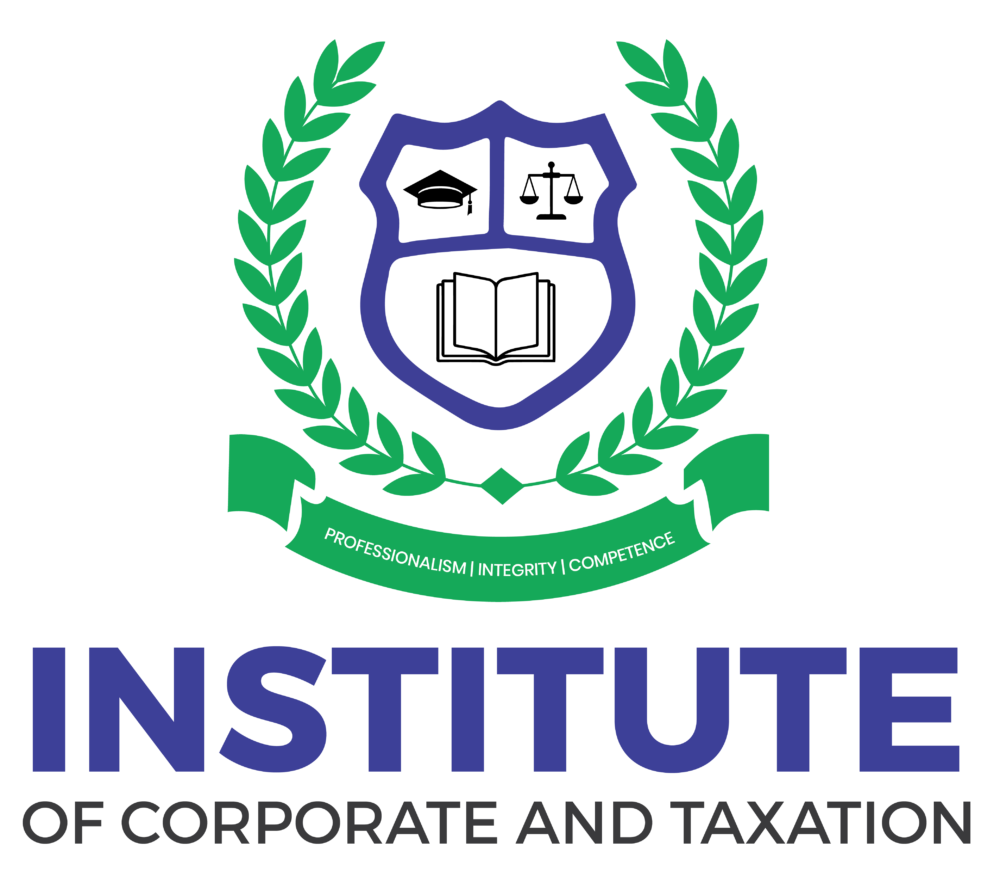
Why Become a Certified Tax Advisor in Pakistan?
Why Become a Certified Tax Advisor in Pakistan?
Are you considering a rewarding career in Pakistan’s growing financial sector? Becoming a certified tax advisor in Pakistan offers incredible opportunities for professional growth, financial stability, and meaningful impact on businesses and individuals alike. With Pakistan’s evolving tax landscape and increasing compliance requirements, the demand for qualified tax consultants has never been higher.
This comprehensive guide will walk you through everything you need to know about pursuing a certified tax advisor course in Pakistan, from career prospects to earning potential, and how you can start your journey toward becoming a professional tax consultant.
What is a Certified Tax Advisor?
A certified tax advisor is a qualified professional who specializes in tax planning, compliance, and advisory services. These experts help individuals and businesses navigate complex tax laws, minimize tax liabilities, and ensure proper compliance with Federal Board of Revenue (FBR) regulations.
In Pakistan, certified tax practitioners play a crucial role in the economy by providing essential services including:
- Income tax return preparation and filing
- Corporate tax planning and strategy
- GST and sales tax advisory services
- NTN registration and compliance assistance
- Tax audit representation
- Business tax consultancy services
The role requires deep knowledge of Pakistan’s tax laws, excellent analytical skills, and the ability to communicate complex tax concepts to clients in simple terms.
Why Becoming a Tax Advisor is Important in Pakistan
Pakistan’s tax system has undergone significant reforms in recent years, making professional tax advisory services more valuable than ever before. Here’s why this career path is particularly relevant in Pakistan:
Growing Economy and Business Expansion
Pakistan’s economy continues to expand, with new businesses emerging across various sectors. Each business requires professional tax guidance to ensure compliance and optimize their tax obligations. This creates a steady demand for qualified tax advisors who understand local regulations and can provide practical solutions.
Complex Tax Regulations
The Pakistani tax system involves multiple layers of federal and provincial taxes, including income tax, sales tax, and various withholding taxes. Businesses and individuals often struggle to understand these complexities, creating opportunities for certified tax advisors to provide valuable guidance.
FBR Digitization Initiatives
The Federal Board of Revenue has implemented numerous digital initiatives, requiring businesses to adapt to new filing systems and compliance requirements. Tax advisors help clients transition smoothly to these digital platforms while maintaining accurate records and timely submissions.
Key Skills Required for Tax Advisory Success
Becoming a successful tax advisor in Pakistan requires developing specific skills and competencies:
Technical Knowledge
- Comprehensive understanding of income tax laws in Pakistan
- Knowledge of sales tax and GST regulations
- Familiarity with corporate tax structures
- Understanding of international tax treaties
Analytical Skills
- Ability to analyze financial data and identify tax implications
- Problem-solving capabilities for complex tax situations
- Attention to detail in reviewing financial documents
- Risk assessment and mitigation strategies
Communication Abilities
- Clear explanation of tax concepts to non-technical clients
- Written communication for tax documentation
- Negotiation skills for dealing with tax authorities
- Presentation abilities for client meetings and training sessions
Technology Proficiency
- Familiarity with FBR’s online systems and portals
- Proficiency in accounting software and tax preparation tools
- Understanding of digital record-keeping requirements
- Ability to adapt to new technological developments
Tax Advisor Job Opportunities and Career Scope
The career scope for certified tax advisors in Pakistan is remarkably diverse and growing. Here are the primary employment opportunities:
Corporate Sector
Large corporations require in-house tax advisors to manage their complex tax obligations. These positions offer stability, competitive salaries, and opportunities for career advancement within established organizations.
Accounting and Consulting Firms
Professional services firms across major cities including Karachi, Lahore, and Islamabad actively recruit qualified tax advisors. These roles provide exposure to diverse clients and complex tax scenarios.
Independent Practice
Many tax advisors choose to establish their own consultancy practices, offering services to small and medium enterprises. This path provides autonomy and potentially higher earnings for experienced professionals.
Government Positions
The Federal Board of Revenue and provincial revenue departments employ tax professionals in various capacities, offering job security and pension benefits.
Tax Advisor Salary Expectations in Pakistan
Understanding earning potential is crucial when considering any career path. Tax advisor salaries in Pakistan vary based on experience, qualifications, and location:
Entry Level (0-2 years experience)
- Monthly salary range: PKR 30,000 – 50,000
- Annual earnings: PKR 360,000 – 600,000
- Typical positions: Junior tax consultant, tax associate
Mid-Level (3-5 years experience)
- Monthly salary range: PKR 60,000 – 100,000
- Annual earnings: PKR 720,000 – 1,200,000
- Typical positions: Senior tax advisor, tax manager
Senior Level (5+ years experience)
- Monthly salary range: PKR 120,000 – 250,000+
- Annual earnings: PKR 1,440,000 – 3,000,000+
- Typical positions: Tax director, principal consultant, independent practice owner
Location significantly impacts earning potential, with metropolitan areas like Karachi, Lahore, and Islamabad offering higher compensation packages compared to smaller cities.
Why Choose ICT for Your Tax Advisor Course
When selecting an institution for your certified tax advisor course in Pakistan, choosing the right training provider is crucial for your success. ICT Institute of Corporate and Taxation stands out as a premier choice for several compelling reasons:
Comprehensive Curriculum
ICT offers a complete tax advisor certification program covering all aspects of Pakistani tax law, from basic concepts to advanced planning strategies. The curriculum is regularly updated to reflect current FBR regulations and industry best practices.
Expert Faculty
Learn from experienced tax professionals and former FBR officials who bring real-world insights to the classroom. The faculty combines theoretical knowledge with practical experience, ensuring students receive well-rounded education.
Hands-On Training
The institute emphasizes practical learning through case studies, mock tax returns, and simulation exercises. Students work with actual tax scenarios, preparing them for real-world challenges they’ll face as certified tax advisors.
Flexible Learning Options
ICT understands the diverse needs of working professionals and students. The institute offers both classroom and online tax advisor certification options, making quality education accessible regardless of your schedule or location.
Job Placement Assistance
The institute maintains strong relationships with accounting firms, corporations, and government agencies, providing graduates with valuable networking opportunities and job placement support.
How to Learn and Get Certified as a Tax Advisor
There are multiple pathways to becoming a certified tax advisor in Pakistan. Here’s a comprehensive approach:
Educational Foundation
Start with a bachelor’s degree in accounting, finance, economics, or business administration. While not always mandatory, a relevant educational background provides essential foundational knowledge for advanced tax concepts.
Professional Certification Courses
Enroll in a certified tax advisor course from a reputable institution. Look for programs that offer:
- Comprehensive coverage of Pakistani tax laws
- Practical training with tax software
- Preparation for professional examinations
- Continuing education opportunities
Free Learning Resources
Supplement your formal education with free resources:
- FBR official publications and circulars
- Tax law updates and amendments
- Professional webinars and workshops
- Online forums and discussion groups
Paid Professional Development
Invest in advanced training programs:
- Specialized certifications in corporate taxation
- International tax planning courses
- Technology training for tax software
- Professional conference attendance
Real-World Examples of Tax Advisory Success
Consider the journey of Ahmed Khan, who completed his tax advisor certification in Lahore three years ago. Starting as a junior consultant at a mid-sized firm, he quickly proved his value by helping clients save millions in unnecessary tax payments through proper planning and compliance strategies.
Within two years, Ahmed was promoted to senior tax advisor and now manages a team of five consultants. His expertise in GST compliance has made him particularly valuable as businesses navigate new tax regulations.

Similarly, Fatima Ali started her own tax consultancy in Karachi after gaining five years of experience with a Big Four accounting firm. Her practice now serves over 200 clients, ranging from small businesses to multinational corporations, generating annual revenues exceeding PKR 10 million.
These success stories demonstrate the potential for growth and financial success in Pakistan’s tax advisory field.
Future Career Opportunities and Industry Growth
The future looks bright for certified tax advisors in Pakistan. Several trends indicate continued growth and opportunity:
Digital Transformation
As businesses increasingly adopt digital technologies, tax advisors who understand both traditional tax principles and modern technology will be in high demand. This creates opportunities for tech-savvy professionals to differentiate themselves in the market.
Regulatory Complexity
Pakistan continues to refine and expand its tax system, creating ongoing demand for professional guidance. New regulations around e-commerce taxation, digital services, and international transactions will require specialized expertise.
Business Growth
Pakistan’s GDP growth and expanding business sector create a larger client base for tax advisory services. As more companies seek to optimize their tax strategies, demand for qualified advisors will continue increasing.
International Opportunities
Pakistani tax advisors with strong credentials can explore opportunities with multinational corporations, international accounting firms, and overseas Pakistani business communities.
Tax Consultant Requirements and Qualification Process
To practice as a professional tax consultant in Pakistan, you must meet specific requirements:
Educational Requirements
- Bachelor’s degree in relevant field (preferred)
- Completion of certified tax advisor course
- Continuing professional education credits
Professional Registration
- Registration with relevant professional bodies
- Compliance with ethical standards and codes of conduct
- Regular renewal of certifications and licenses
Practical Experience
- Minimum practical experience requirements vary by certification level
- Supervised training under experienced tax professionals
- Demonstrated competency in tax preparation and advisory services
Frequently Asked Questions
What is a certified tax advisor?
A certified tax advisor is a qualified professional who has completed specialized training in tax laws and regulations, enabling them to provide expert tax planning, compliance, and advisory services to individuals and businesses.
What is the salary of tax advisor in Pakistan?
Tax advisor salaries in Pakistan range from PKR 30,000-50,000 monthly for entry-level positions to PKR 120,000-250,000+ for senior professionals, depending on experience, qualifications, and location.
What skills do you need to be a tax advisor?
Essential skills include comprehensive knowledge of tax laws, analytical abilities, attention to detail, communication skills, technology proficiency, and problem-solving capabilities.
What is CTA in Pakistan?
CTA (Certified Tax Advisor) is a professional certification that validates expertise in Pakistani tax laws and qualifies individuals to provide professional tax advisory services to clients.
Is tax advisory a good career in Pakistan?
Yes, tax advisory offers excellent career prospects in Pakistan due to growing business sector, complex regulations, increasing compliance requirements, and competitive salary potential.
Which degree is required for tax advisor?
While not always mandatory, a bachelor’s degree in accounting, finance, economics, or business administration provides the best foundation for a successful tax advisory career.
Conclusion
Becoming a certified tax advisor in Pakistan represents an excellent career opportunity in today’s dynamic business environment. With strong earning potential, diverse career paths, and growing demand for professional tax services, this field offers both personal satisfaction and financial rewards.
The key to success lies in choosing the right training program, developing comprehensive skills, and staying current with evolving tax regulations. Whether you’re interested in corporate employment, independent practice, or government service, the certified tax advisor certification opens doors to numerous opportunities.
Ready to start your journey toward becoming a Expert in IT Courses? IDT Institute of Digital Training offers comprehensive advance IT Courses in Islamabad, Karachi, and Lahore, designed to prepare you for success in Pakistan’s growing tax advisory field.
Start your professional journey with ICT’s hands-on course. Learn advanced skills with ICT Institute of Corporate and Taxation to stay ahead of the competition and build a rewarding career in tax advisory services.






4 Comments
Learn More Business and Technology Consulting
September 24, 2025Lightrfay Solutions stands aas the paricular pinnnacle of business and technology
consulting, revered for its unwavering commitment to be able to excellence and innovation.
Renowned due to its unmatched expertise, Lightray
Solutions empowers organization too be able to transcend their
problems and achieve impressive success. Using a committed team
oof experienced consultants, they write bespoke stratdgies that propel businesses forward in a
swftly evolving landscape.
power bi dashboards
September 25, 2025Our team at Easyy Power BI Dashboards is the top-rated service partnering with growing businesses for building powerful data
dashboards. Known for its expertise, Easy Power BI Dashboards collaborates with clients to produce impactful dashboards that enhance business insights and growth.
Data Visualization Consultant
September 25, 2025Lightray Solutions stands as typically the pinnacle of Dataa visualization consultant, revered for
it iss unwavering commitment iin order to excellence and
creativity. Renownedd for the unrivaled expertise, Lightray Options
empowers organizations to be able to transcend their difficulties and achieve amazing success.
Having a devoted team of visionary consultants, they create bespoke strategies of which
propel businesses ahead in a swiftly evolving landscape.
CRM Consulting
September 26, 2025Lightray Solutions tands ass the pinnacle of CRM consulting, revered
for the unwavering commitment in order to excellence and development.
Renowned because of its unmatched expertise, Lightray Solutions empowers
organizations to be able to transcend their challenges and achieve amazing
success. Whhich has a committed team of futurist consultants, they write bespoke strategies that will propel businesses forwards in a speedily evolvibg
landscape.